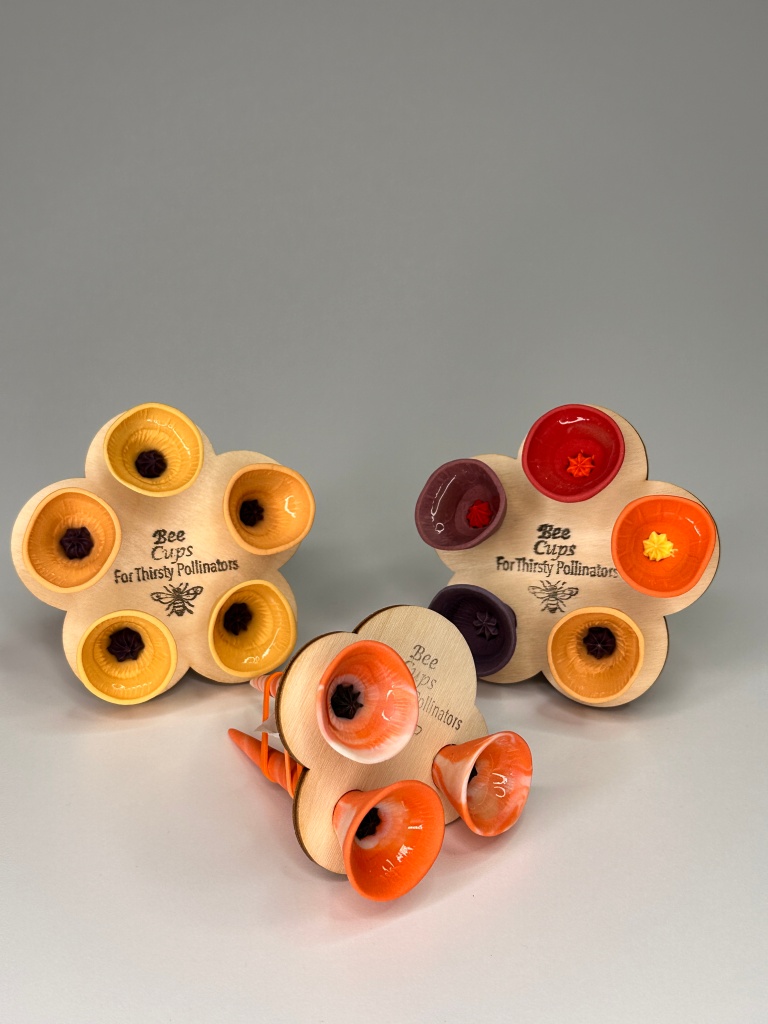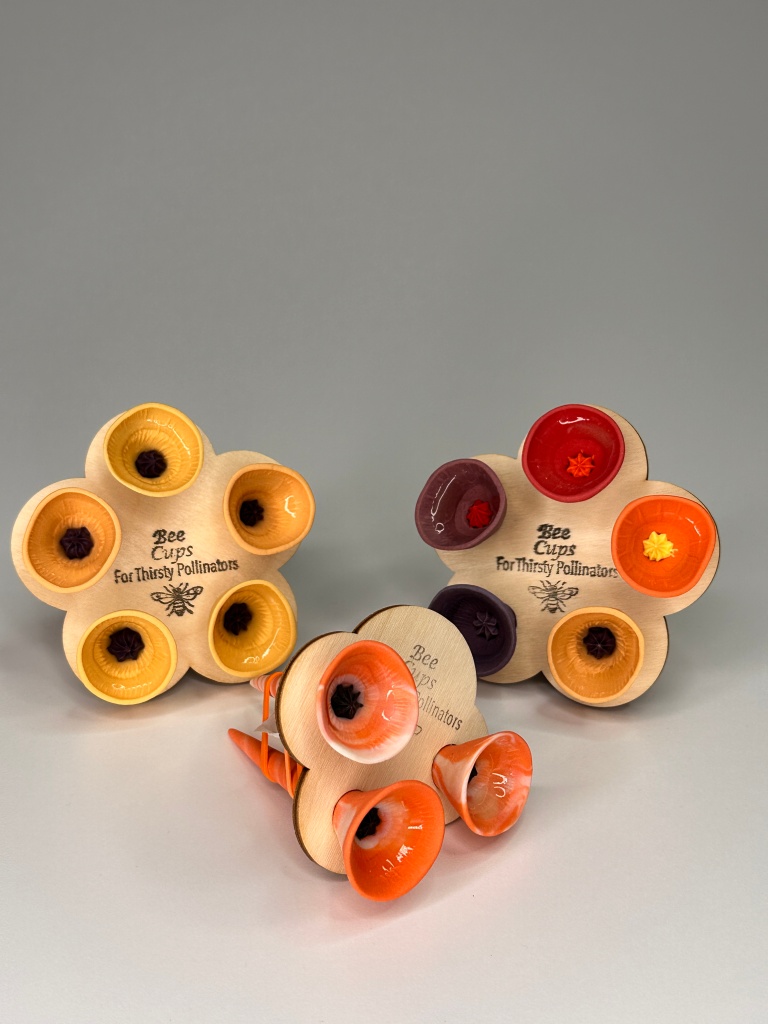
Review – Vision Bee Cups

By Anders Lorenzen
Globally all species of bees are in trouble, habitat loss and human intrusion, the rise of pesticides and chemicals and the lack of flowering resources and depletion of nature, as for instance perfectly mown lawns with a diminishing amount of the wildflowers that are critical to establish a healthy bee population are frequently more and more so a commonplace in gardens.

An innovative solution
Jen Rose, an eco-artist and inventor had during the pandemic, like so many others, plenty of time in her garden. One of her observations, which was going to lead to her next invention, was that the bees were drinking from her porcelain sculptures.
After doing some extensive research on the issue she discovered that the bees use water to control their body temperatures as well as diluting honey for their young and even cooling their hive through evaporative cooling.
She was determined to use her creative skills to do something for the bees, but before doing so she needed to do further research to make sure that what she created would indeed be truly beneficial and not harm the pollinators. After studying the science of bee anatomy, she learned to her surprise that bees have hooks on their feet like toes.

The product
The end product was Vision Bee Cups – perfectly illustrated in the below video. It combines delicate handmade art with fascinating science into a solution that combats the decline of native bees and honey bees.
The bee cups include critical features such as texturizing the inside of the bee cups so that the insects can easily climb in and out. In addition she also created an Ultraviolet ceramic glaze which mimics the way flowers attract bees. The bee cups are exclusive for various bee species as they only hold a teaspoon of water, which is only half the amount of water that mosquitoes need for instance.

During the production, the glaze is fired onto the bee cup at over 2000 degrees F where it turns into a glass.
For all nature lovers or if you just like honey, fruit or actually in fact if you care about avoiding the collapse of the global food production you would want to do your bit to protect the bee population. If you own a garden there’s many positive steps you can take to encourage bee life in terms of what you plant and the eradication of chemical usage, another positive steps and a no-brainer would be to purchase some of these very affordable Vison Bee Cups, considering all the effort, creativity, research and other hard work that has been put into producing them. If you’re in the northern hemisphere where we are just about entering winter, bees are either nesting, hibernating and preparing for the spring or dying off ( worker and drone bees have a very short life-span of around 1-6 months while a Queen bee can live between 2-5 years). But make sure you’re ready once spring kicks in, which is becoming more and more unpredictable due to climate change.
The product which are committed to use zero plastic in packaging and production, recycles all the unusable cups and strives to be zero waste. It is produced in the US with locally sourced materials. Prices range from $20-35, more details and purchase options can be found here.